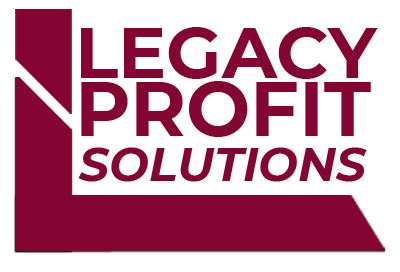Need help with your taxes? A taxation accountant can ensure your tax return is accurate and fully compliant with tax laws. This article explores their role, key skills, areas of specialization, and how they can make your tax season less stressful.
Key Takeaways
- Taxation accountants ensure compliance with tax laws, offer expert advice, and carefully prepare tax documents.
- Success in taxation accounting requires strong analytical skills, attention to detail, and a deep understanding of ever-changing tax regulations for effective planning and compliance.
- Choosing a qualified taxation accountant is essential for developing personalized tax strategies and managing tax liabilities, with specializations available in corporate, personal, and international taxation.
Understanding the Role of a Taxation Accountant
Taxation accountants play a crucial role in the financial world, handling various responsibilities to ensure compliance and accuracy in tax-related matters. Their key duties include:
- Preparing tax return documents
- Providing essential tax advice to clients
- Calculating taxes owed
- Compiling and submitting required documentation
These professionals meticulously review every detail to ensure nothing is overlooked. They analyze clients’ financial statements, ensure adherence to tax regulations, and maintain open communication throughout the tax preparation process.
In addition, taxation accountants assess accounting systems to identify areas for improvement, making them valuable assets in any accounting practice. Accuracy and compliance are central to their work, as they review all relevant financial information to meet legal standards.
With tax laws constantly evolving, these experts confidently help clients navigate the complex and ever-changing tax landscape.

Key Skills for Successful Taxation Accountants
Success in taxation accounting requires a unique blend of skills. Attention to detail is essential— even minor errors in tax returns can result in significant financial consequences for clients. Strong analytical skills are also crucial, allowing tax accountants to interpret complex regulations and financial data effectively.
A deep understanding of tax laws is vital for both planning and compliance. Taxation accountants must stay updated with the latest legislative changes to provide accurate advice and ensure timely, correct filings.
This combination of precision, analytical thinking, and up-to-date knowledge not only enables tax accountants to manage complex tax matters but also builds their reputation as reliable and trusted professionals.
Areas of Specialization in Taxation Accounting
Taxation accounting spans several specialized areas. Tax accountants may focus on corporate, personal, or international taxation—each presenting unique challenges and requiring specific expertise.
Understanding these specializations helps clients find the right support tailored to their individual or business needs.
Corporate Taxation
Corporate taxation involves navigating complex regulations and strict compliance standards. Accountants in this field specialize in business income tax, ensuring that organizations comply with financial reporting standards and relevant tax laws, which often vary between jurisdictions.
They are responsible for preparing corporate tax returns, identifying applicable deductions and credits, and ensuring compliance with all regulatory requirements. Their expertise not only helps companies manage their tax liabilities effectively but also supports long-term financial planning and strategic decision-making.

Personal Taxation
Personal taxation requires a thorough understanding of individual financial situations and applicable tax laws. Specialists in this area develop customized strategies to optimize deductions and credits based on each client’s unique circumstances. They prepare personal tax returns with great attention to detail, ensuring all eligible deductions and credits are correctly applied.
These professionals help individuals navigate complex tax rules by offering advice tailored to their financial goals and needs. This personalized approach helps clients maximize their tax refunds and minimize their liabilities.
International Taxation
International taxation demands expertise in managing tax obligations across multiple countries. Accountants specializing in this field assist clients with reporting foreign income and investments and ensure compliance with various international tax laws.
They interpret complex tax treaties and regulations affecting cross-border income, offering critical guidance to clients involved in global financial activities. By helping clients manage foreign income and investments effectively, these experts are vital in minimizing tax liabilities and ensuring compliance with international requirements.
In Canada, individuals must report their worldwide income to the CRA (Canada Revenue Agency), and international tax specialists can assist with compliance when foreign income or assets are involved, including obligations under the Foreign Income Verification Statement.
In today’s interconnected world, international tax specialists are invaluable resources for individuals and businesses operating across borders.
Path to Becoming a Taxation Accountant
The journey to becoming a taxation accountant begins with a strong educational foundation. Most aspiring professionals pursue a college degree in accounting or a related field such as finance or economics. Many also choose to further enhance their qualifications—and income potential—by earning a graduate degree.
The Chartered Professional Accountant (CPA) designation is the standard credential for accounting professionals in Canada. It is essential for certain roles in taxation and financial reporting and is highly valued by employers. This certification greatly enhances job prospects and professional credibility. Gaining hands-on experience through volunteer opportunities, such as assisting with tax return preparation, can also provide practical insights and build essential skills.
Because tax laws change frequently, taxation accountants must commit to continuous education and training. Staying current ensures they remain compliant with evolving regulations and can offer accurate, up-to-date advice to clients.
It’s important to note that not all tax preparers have the same qualifications. Clients should carefully evaluate the credentials of their tax professionals to avoid errors or compliance issues in their filings.
The Importance of Tax Planning
Proactive tax planning is a critical component of effective financial management for individuals and businesses. It helps minimize tax liabilities and optimize financial outcomes. Without a proper tax plan, taxpayers may overpay or miss out on valuable deductions and credits for which they may be eligible.
Thoughtful tax planning can uncover opportunities for deductions, credits, and exemptions, resulting in significant financial savings. Personalized strategies—tailored to an individual’s or business’s financial situation—can further enhance these benefits.
Small businesses also benefit from tax planning by leveraging deductions related to operational expenses. This can help them retain more of their earnings. Contributing to Registered Retirement Savings Plans (RRSPs) or Tax-Free Savings Accounts (TFSAs) supports long-term savings goals and can offer significant tax advantages. Identifying eligible business expenses—such as inventory costs, marketing, and other overhead—is essential for maximizing deductions and improving profitability.

Taxation Accountant Salary and Career Outlook
A career in taxation accounting offers strong earning potential and long-term stability, making it a reliable and rewarding career path.
According to labour market data in Canada, demand for CPAs and taxation accountants remains strong, especially in sectors such as finance, government, and public accounting. Job openings are expected to increase due to retirements and business growth.
Real-World Applications: Case Studies
Real-world case studies demonstrate how strategic tax planning is applied across different scenarios, highlighting the value of tax accounting in practice.
These examples provide meaningful insights into the benefits of working with skilled tax professionals, from maximizing deductions to navigating complex financial regulations.
Small Business Tax Optimization
A compelling example involves a small business significantly reducing tax liabilities by leveraging deductions and credits specific to its industry. By strategically structuring expenses and utilizing available tax benefits, the company lowered its overall tax burden, positively impacting its financial stability.
For instance, a store owner identified eligible business expenses and contributed to a Registered Retirement Savings Plan (RRSP), reducing their taxable income. This strategic approach to tax planning allowed them to reinvest in the business, fostering growth and improving financial health.
High Net-Worth Individual Tax Strategy
High-net-worth individuals often face complex tax situations that require advanced planning to minimize liabilities. One effective strategy involves using trusts and estate planning to reduce tax burdens while maintaining compliance with legal regulations. Tools like these are essential for managing tax obligations efficiently in the high-net-worth segment and can be tailored to suit various financial goals.

Common Challenges Faced by Taxation Accountants
Taxation accountants face various challenges, particularly during the busy tax season. Managing client expectations and handling complex returns can create significant pressure. Effective time management is essential to managing multiple clients and meeting deadlines.
Document organization presents another challenge, as clients often provide incomplete or disorganized paperwork, making the tax preparation process more complicated. Additionally, cybersecurity threats become more prevalent during tax season due to the sensitive data accountants handle, requiring robust security measures to protect client information.
Proficiency in accounting software is crucial for streamlining processes and ensuring compliance with accounting standards. For specialists in international taxation, there is the added complexity of managing tax obligations across multiple countries while ensuring compliance with local and international tax laws.
Choosing the Right Taxation Accountant for Your Needs
Selecting the right taxation accountant is essential for effectively managing your tax-related matters. In Canada, Chartered Professional Accountants (CPAs) are qualified to represent clients before the Canada Revenue Agency (CRA) and are trained to provide expert tax advice. It’s important to choose an accountant who can help reduce tax burdens legally through proven, compliant strategies.
Personal tax accountants offer customized advice that considers individual financial situations and goals. Strong communication skills are also crucial, as a good tax accountant should be able to clearly explain complex tax concepts and help clients fully understand their tax situations.
Summary
Taxation accountants are crucial in navigating the complexities of tax laws and ensuring compliance. Their expertise in tax return preparation, financial reporting, and tax planning is invaluable for individuals and businesses. Understanding the various specializations within taxation accounting allows clients to select the right professional to meet their specific needs.
As tax laws continue to evolve, proactive tax planning becomes even more critical. Whether optimizing deductions for small businesses or implementing strategies for high-net-worth individuals, skilled taxation accountants provide guidance that can lead to substantial financial savings. Seek the expertise of a qualified tax accountant to better manage your tax-related matters and achieve your financial goals.
Frequently Asked Questions
What are the main responsibilities of a taxation accountant?
Taxation accountants primarily prepare tax returns, offer tax advice, calculate taxes owed, and ensure compliance with tax regulations. They also review clients’ financial statements and accounting systems to identify areas for improvement.
What skills are essential for a successful taxation accountant?
Attention to detail, strong analytical skills, and a thorough understanding of tax laws are essential for success in taxation accounting. These skills enable accountants to effectively interpret complex tax data and provide accurate guidance to clients.
What are the main areas of specialization in taxation accounting?
The main areas of specialization in taxation accounting include corporate taxation, personal taxation, and international taxation. Each area requires specific expertise to address the unique tax issues related to businesses, individuals, and international transactions.
How can one become a taxation accountant?
To become a taxation accountant, you should earn a degree in accounting or a related field, obtain relevant certifications like CPA, and gain practical experience through internships or volunteer work. Staying updated with tax laws through ongoing education is also essential for success in this field.
Why is tax planning critical?
Tax planning is crucial for minimizing tax liabilities and maximizing financial benefits. By identifying deductions, credits, and exemptions, tax planning ensures you’re not overpaying and are fully utilizing available tax advantages.





